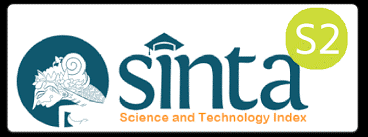Family support for management of hypertension
DOI:
https://doi.org/10.35730/jk.v15i2.1096Abstract
Background: The phenomenon that occurs in hypertension patients in the internal medicine room at Dr. Achmad Darwis Suliki Hospital is that the family is not involved in managing hypertension management because the family does not know about hypertension management.
Purpose: The research purpose is to examine the relationship between family support and hypertension management at home
Methods: This research uses a quantitative type with a descriptive correlation and design using a cross-sectional approach. Data collection started from October to February 2022 in the internal medicine room at Dr. Achmad Darwis Suliki Hospital with a sample of 67 respondents using an accidental sampling technique. The data collection tool used a questionnaire and was analyzed using the chi-square test.
Results: The results of the study that there was a relationship between family support and hypertension management at home (p = 0.000 and OR = 18.889), with an Odds Ratio value of 18.889 so that respondents whose families supported hypertension management had 18.9 times the chance of carrying out hypertension management well.
Conclusion: The family has an important role in hypertension management, family support is a motivation for sufferers to carry out hypertension management well. Health workers are expected to always educate families of hypertension sufferers so that they are involved and play an active role in carrying out hypertension management at home so that they can control blood pressure and preventive measures for the occurrence of complications in hypertension sufferers.References
REFERENCE
World Health Organization. (2023). “Planning and implementing palliative care services: a guide for programme managers,” in World Health Organization, Elsevier.
A. P. R. Score. (2014). “Genetic Predisposition to Ischemic Stroke,” pp. 1–7, 2016, doi: 10.1161/STROKEAHA.116.014506.
Friedman. (2014). Buku Ajar Keperawatan Keluarga: Riset, teori Dan Praktek, no. 8. Jakarta: EGC.
W. Utaminingsih. (2013). “Mengenal dan Mencegah Penyakit Diabetes, Hipertensi, Jantung dan Stroke untuk Hidup Lebih Berkualitas,” M. Ilmu, Ed. Yogyakarta.
R. Amelia. (2020). “Hubungan Dukungan Keluarga Terhadap Kepatuhan Diet Hipertensi Pada Penderita Hipertensi Di Kelurahan Tapos Depok,” J. Kesehat. Saelmakers Perdana, 2020, doi: 10.1161/STROKEAHA.111.000396.
Pranata., J. (2018). Aku Perawat Komunitas, no. August. Yogyakarta: EGC.
I. Tumenggung. (2013). “Hubungan Dukungan Sosial Keluarga Dengan Kepatuhan Diet Pasien Hipertensi di RSUD Toto Kabila Kabupaten Bone Bolango,” J. Heal. Spor, vol. 7.
V. Kurnia & Nataria D. (2021). “Manajemen Diri (Self Management) Perilaku Sehat pada Pasien Hipertensi.,” J. Ris. Hesti Medan Akper Kesdam I/BB Medan.
D. Barahama. (2019). “Faktor-faktor yang Berhubungan dengan Keterlambatan Kedatangan Pasien,” J. e-Clinic, vol. 7, no., pp. 1–6.
E. Daziah. (2020). “Hubungan Antara Dukungan Keluarga Dengan Perilaku Perawatan Hipertensi Yang Dilakukan Oleh Keluarga Di Rumah,” Din. Kesehat. J. Kebidanan dan Keperawatan, vol. 1.
S. J. Ishak. (2021). “hubungan faktor ekonomi dengan keterlambatan keluarga membawa pasien stroke ke igd rsud labuha kabupaten halmahera selatan,” J. Serambi Sehat, vol. XIV, no. 3, pp. 35–43.
M. T. N. Rosmary and F. Handayani. (2020). “Hubungan Pengetahuan Keluarga dan Perilaku Keluarga pada Penanganan Awal Kejadian Stroke,” J. Holist. Nurs. Heal. Sci., vol. 3, no. 1, pp. 32–39.
M. S. Mohtar. (2019). “Hubungan Durasi Pertolongan Dengan Tingkat Kerusakan Neorologis Pasien Stroke di RSUD Ulin Banjarmasin,” vol. 10, no. 1.
R. A. Yuniar Rahmina, Abdurrahman Wahid. (2017). “Tingkat pendidikan keluarga terhadap golden hour pasien stroke di rsud ulin banjarmasin,” Dunia Keperawatan, vol. 5, pp. 68–77.
Astina. (2020). “hubungan antara waktu rujukan dengan tingkat defisit neurologis pada pasien stroke di rsud sultan imanuddin pangkalan bun tahun 2020,” sekolah tinggi ilmu kesehatan borneo cendekia medika pangkalan bun.




